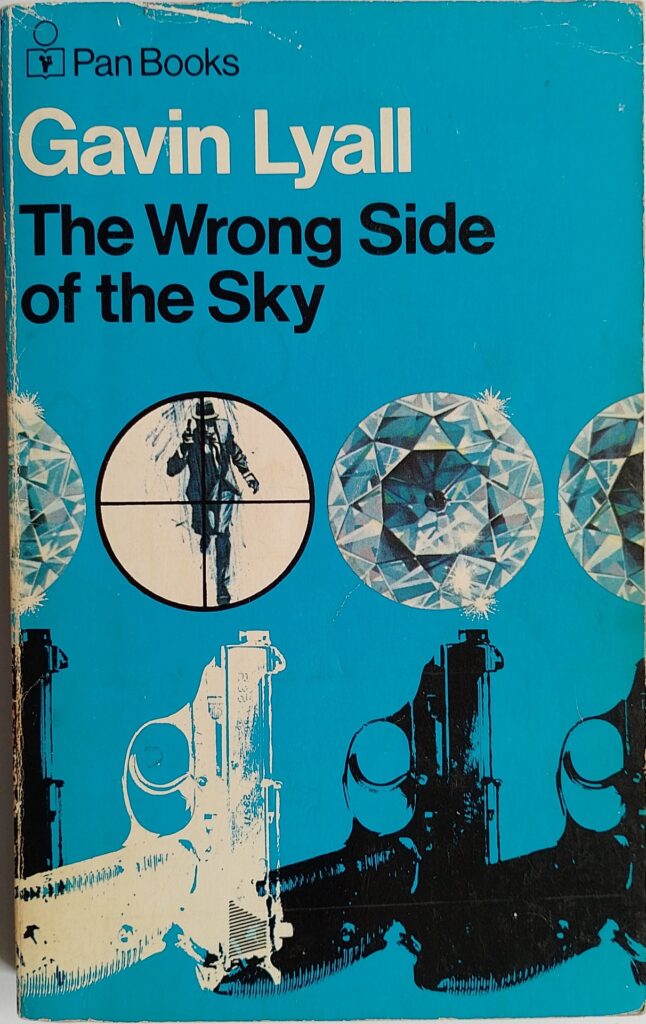First Published 1961. Pan, paperback, 1971, pp 237, c.90,000 words.
This was Lyall’s first novel, and it was an immediate success. It allowed him to give up journalism and become a full-time writer. It is a classic thriller of the period, described in the blurb on the back as being ‘up to date’ but now seeming very dated. The characters nearly all smoke a lot of the time and drink very heavily – and two of the major ones are pilots. After WW2 there must have been a lot of young men who had been trained as pilots and loved it, but then found there were few jobs flying. Disillusionment and scrabbling around for dodgy work were probably common. This is the setting for the book. This is a man’s world and women have minor roles at best, and all are seen from the male perspective, although none are simply there for that purpose.
Lyall is an accomplished writer, and no one here is a pure caricature. Each is fleshed out into a real human being. We are never quite sure who is good and who is bad: sometimes people change depending on who they are talking to or as a result of events. The plot is highly original and complex for this type of thriller.
Lyall has an engaging writing style. Sometimes he writes gems such as these:
Policeman: ‘A man who is used to business with policemen can hide what he knows. He can never hide that he is hiding something.’ Protagonist: ‘Everyone has something to hide. That’s why we wear clothes.’ [p.137]
From the cockpit of an aeroplane flying over the Mediterranean: The sun reached the sea ahead of us, spilling quickly across it in a run of gold sparks off the wavetops, then gathering into surging pools of light, then joining and spreading until the whole horizon was a vast plate of dimpled brass. We sat and watched it happen. [p.181]
– Superior writing that you don’t find in most thrillers. Not that any of this gets in the way of the action which runs pretty hot throughout. Every scene drives the plot on, every character has an influence on what happens next. There is no flab here.
Bearing in mind that this was written in the late 1950s or 1960, this is a superbly written and highly entertaining read. Lyall is much underappreciated, perhaps because he never quite developed or focused on a recognisable, and two-dimensional, character like James Bond.
© William John Graham, July 2022

